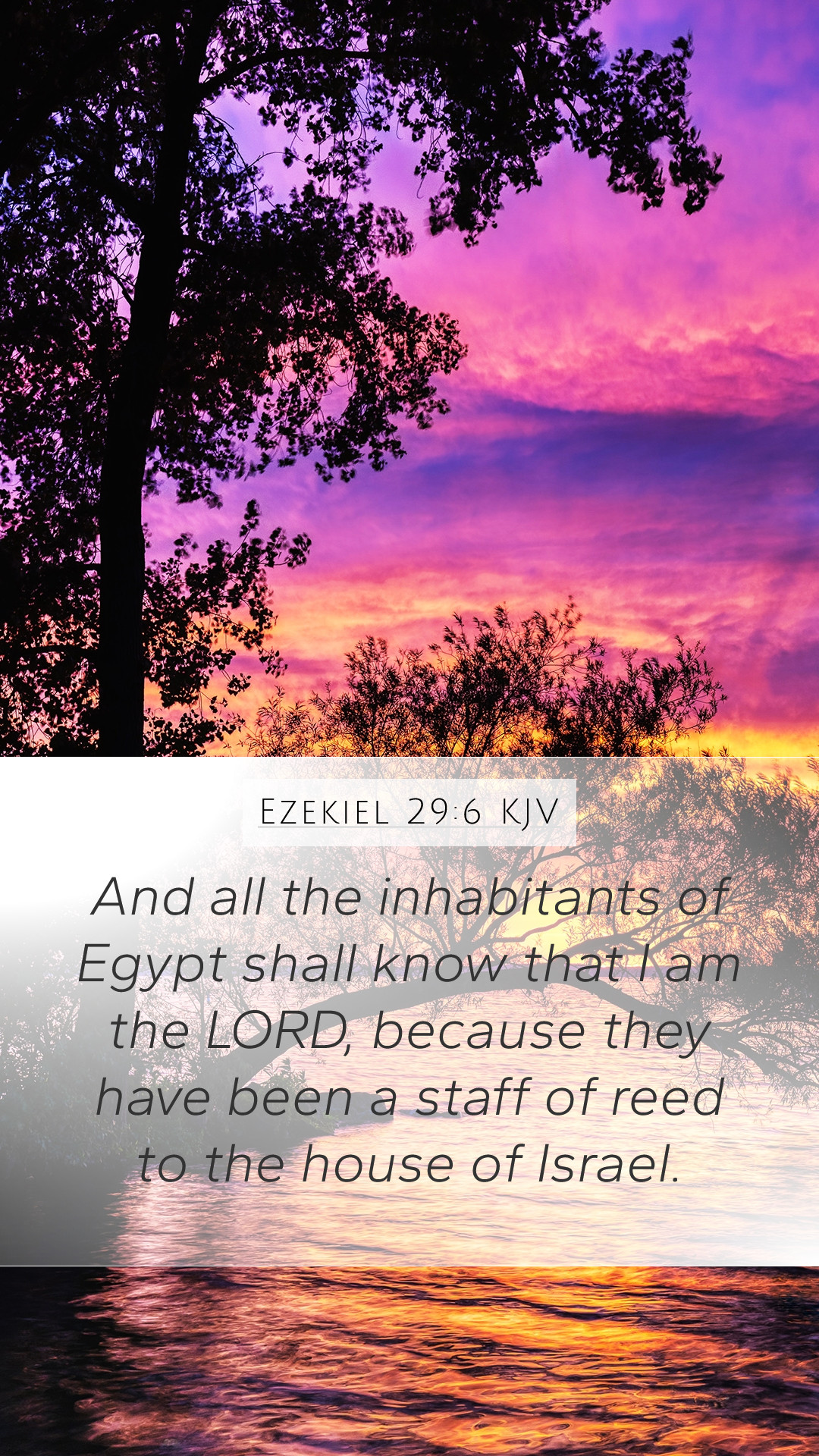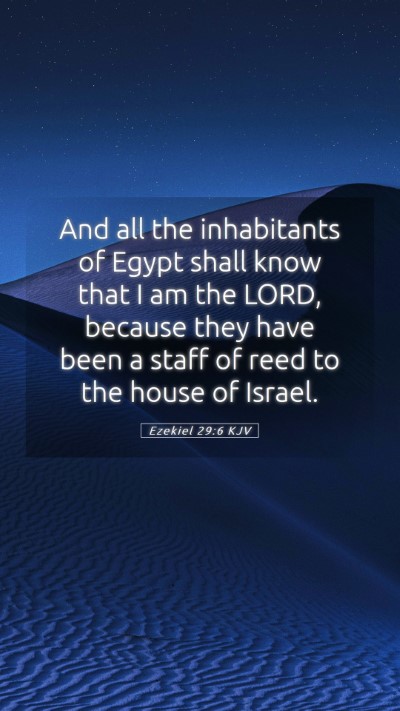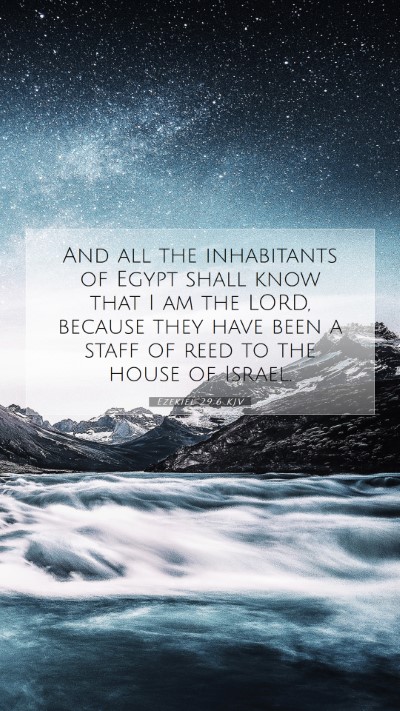Ezekiel 29:6 - Bible Verse Commentary and Interpretation
Verse: "And all the inhabitants of Egypt shall know that I am the Lord, because they have been a staff of reed to the house of Israel." - Ezekiel 29:6
This verse from Ezekiel highlights the truth of God's sovereignty and the consequences of reliance on alliances that are not solid or dependable. Here we delve into the meanings and interpretations from various public domain commentaries.
Bible Verse Meaning
Understanding Scripture: In this passage, we learn that the people of Egypt will come to know the Lord as God. This recognition of God often arises from circumstances that reflect their failures or misplaced trust. The phrase "staff of reed" signifies something fragile and unreliable, which contrasts with the strength and stability that comes from trusting in God.
Bible Verse Interpretations
-
Matthew Henry: Henry emphasizes the judgment that God brings upon those who have been false allies. This verse illustrates how Egypt's past as a supporter of Israel has now turned to a cause of downfall, showing the folly of depending on such alliances.
-
Albert Barnes: Barnes points out the transformative moment when Egyptians will recognize their errors and the power of the true God. He notes that God uses events in their lives to manifest His identity and authority to them.
-
Adam Clarke: Clarke explains that the metaphor of the "staff of reed" reflects Egypt's fragility and ineffectiveness. Trusting in Egypt (or any similar entity) instead of God leads to disappointment and disaster.
Insights on Biblical Exegesis
The historical context of this verse is important. Ezekiel was prophesying during a time when Egypt seemed powerful, but God, through His prophet, is making it clear that their strength is transient. This serves as a warning to Israel and others about the dangers of relying on human power rather than divine strength.
Bible Study Insights
This verse is an invitation to reflect on our own choices regarding whom or what we place our trust in. In our contemporary context, many find themselves clinging to transient supports - be they relationships, institutions, or earthly resources - that can lead to ruin just as Egypt failed Israel.
Application of the Verse
In application, believers are encouraged to seek deeper reliance on God's promises. Just as Egypt learned of God's might, individuals today can witness His power in their life when they place trust solely in Him.
Related Cross References
- Isaiah 36:6 - "Behold, thou trustest in the staff of this broken reed, on Egypt; wherein if a man lean, it will go into his hand, and pierce it." This highlights the idea of Egypt's unreliability.
- Jeremiah 2:18 - "And now what hast thou to do in the way of Egypt, to drink the waters of Sihor? or what hast thou to do in the way of Assyria, to drink the waters of the river?" This reference speaks to the futility of seeking help from worldly nations.
- Ezekiel 30:2-3 - These verses also emphasize the impending judgment upon Egypt, reinforcing the theme found in Ezekiel 29:6.
Concluding Thoughts
Ezekiel 29:6 serves as a profound reminder of the importance of understanding Scripture and the necessity of placing our hope and trust in the Lord rather than in frail human institutions. As we engage in Bible study groups or personal online Bible study, let this verse guide our reflections on trust, reliance, and the character of God revealed through history.


